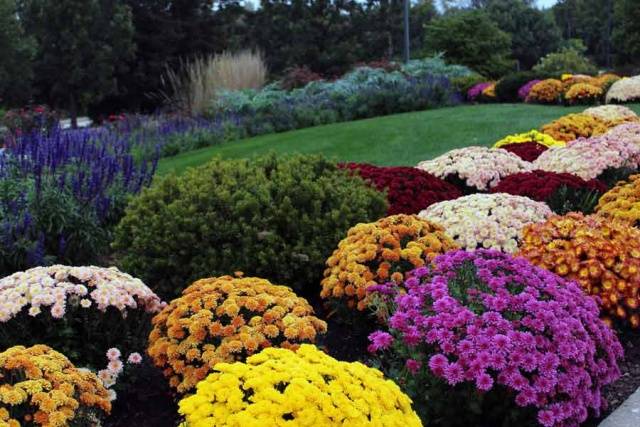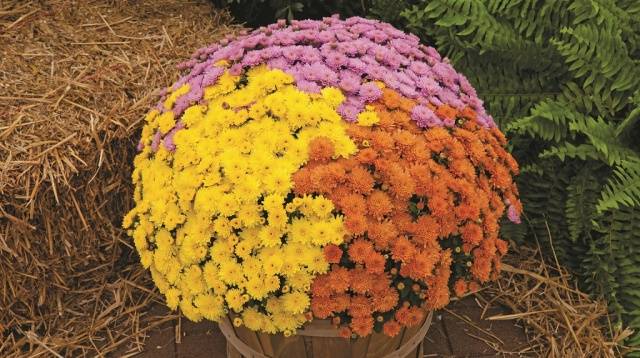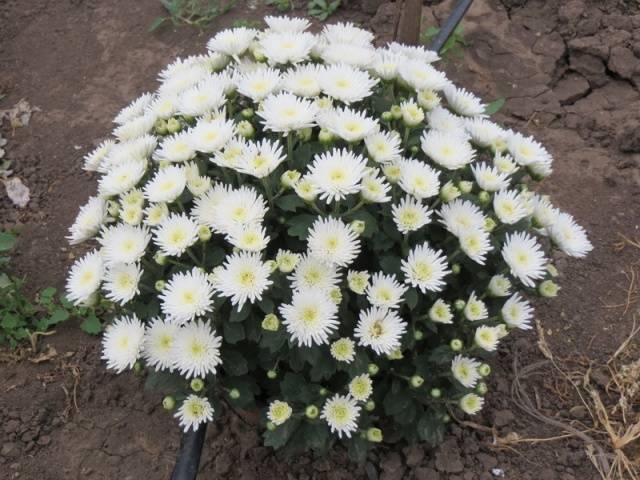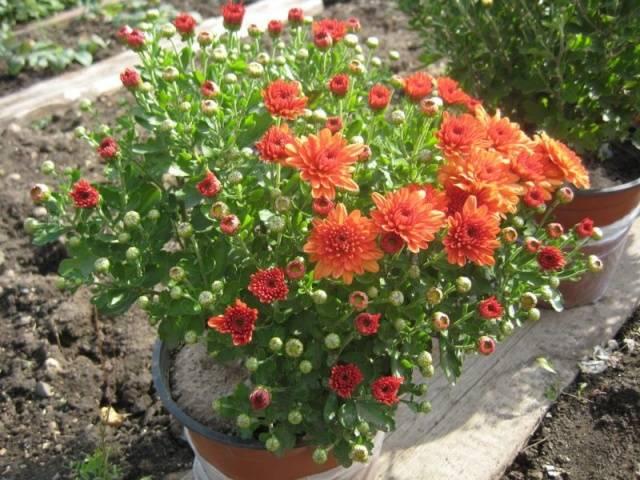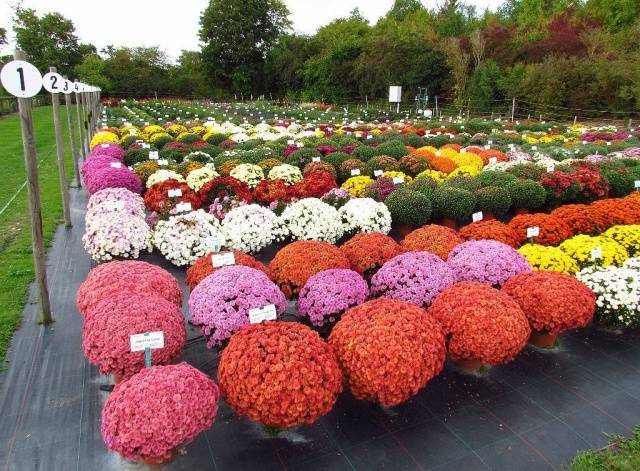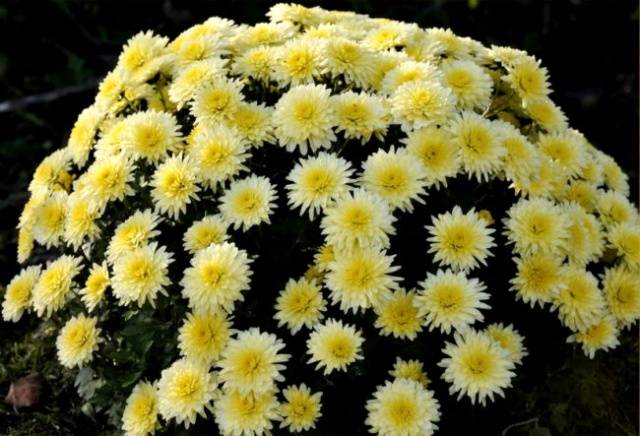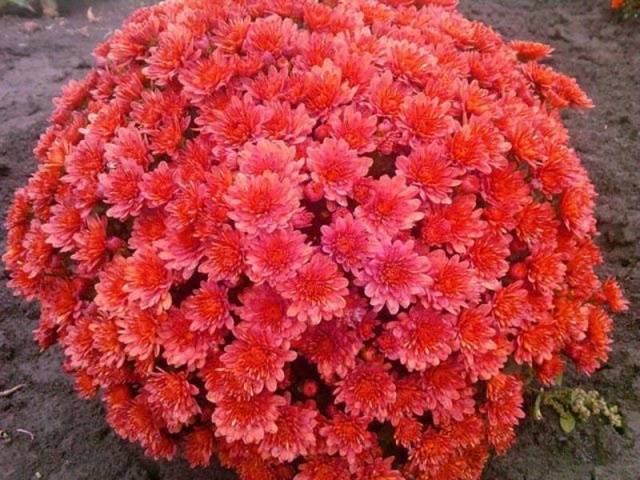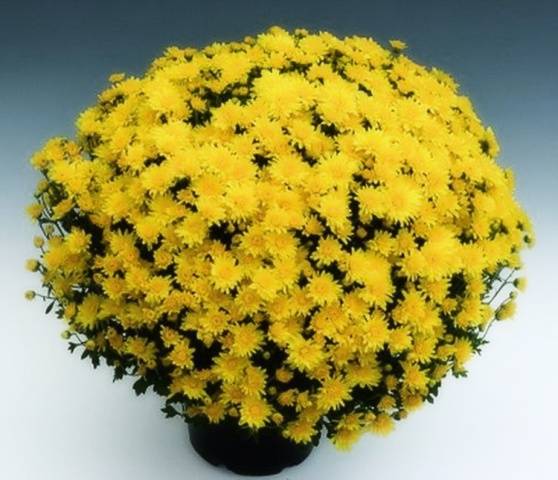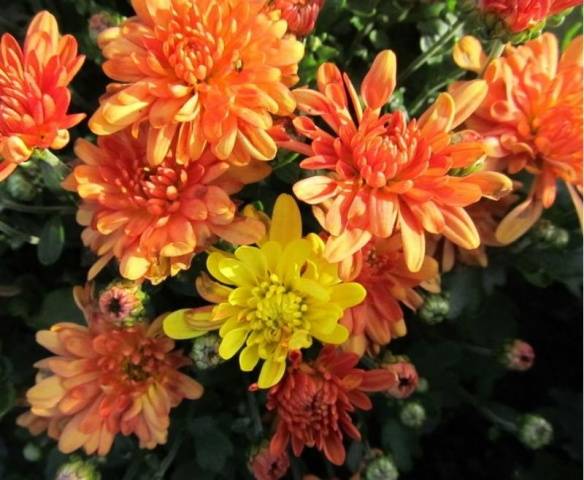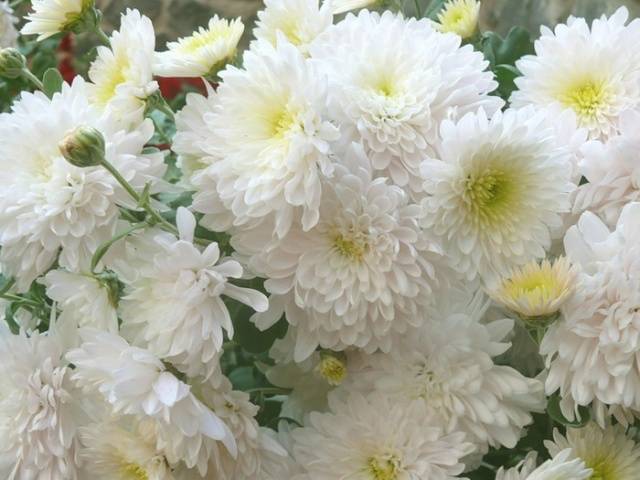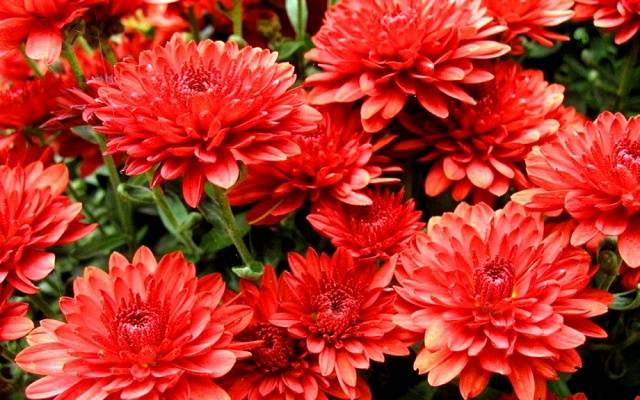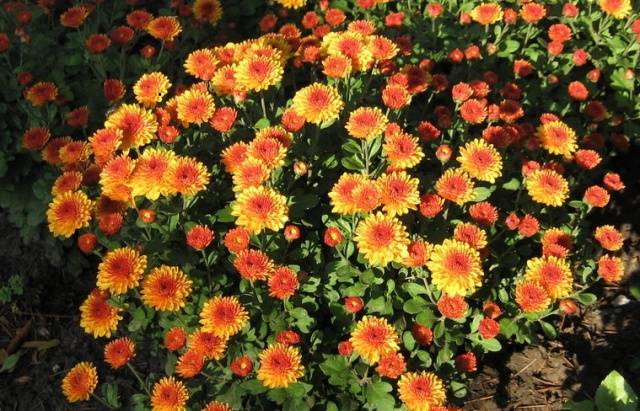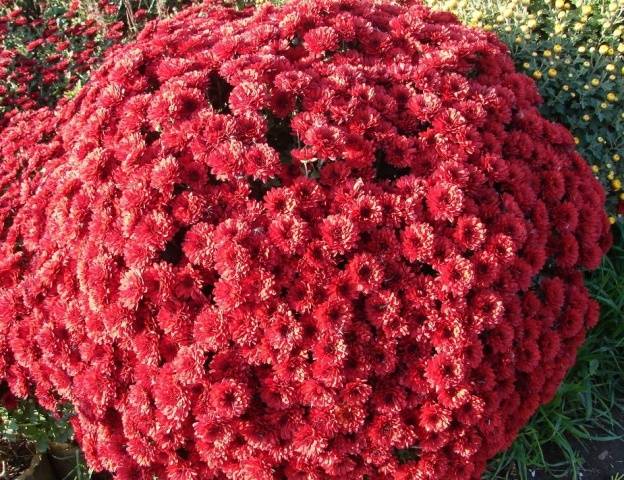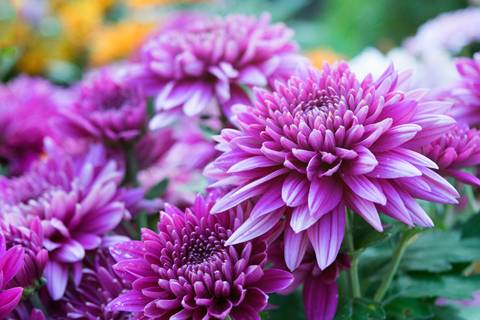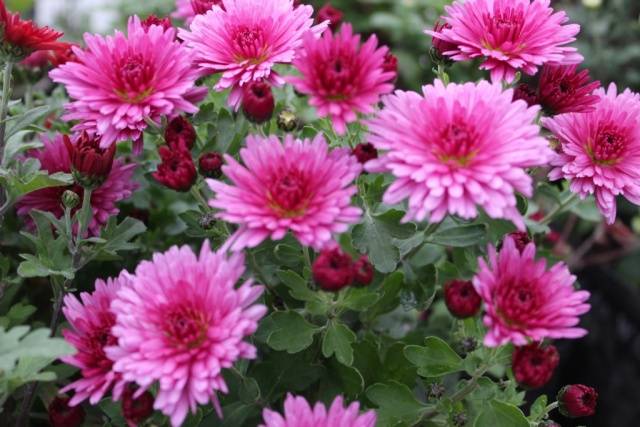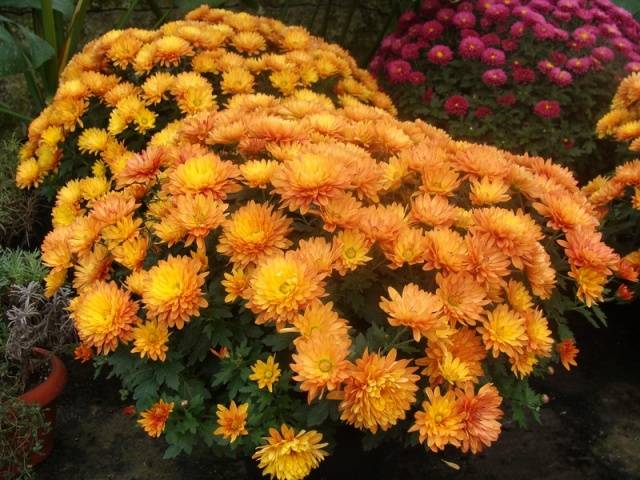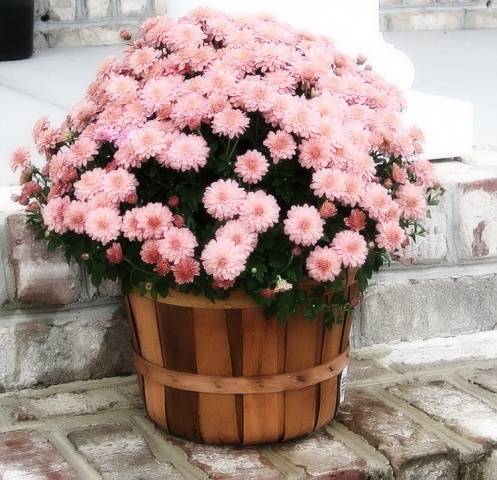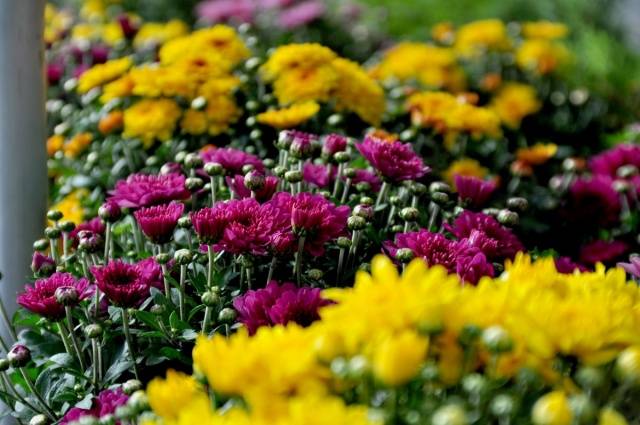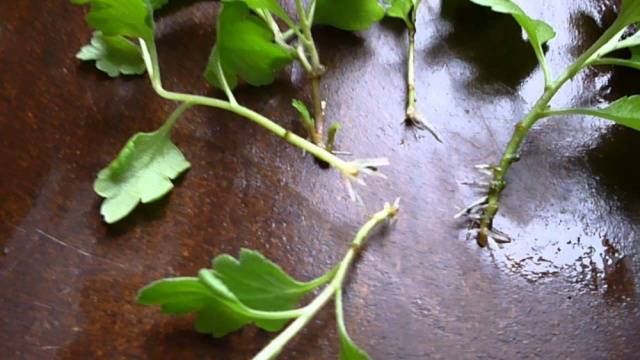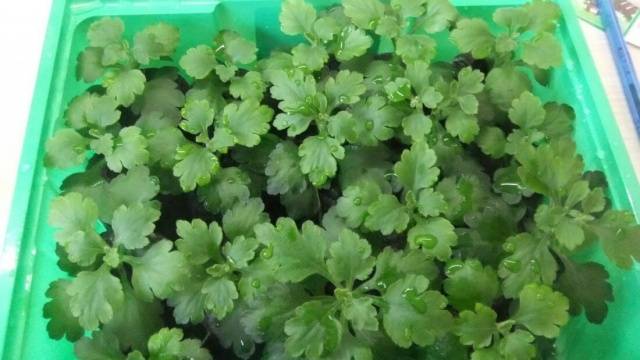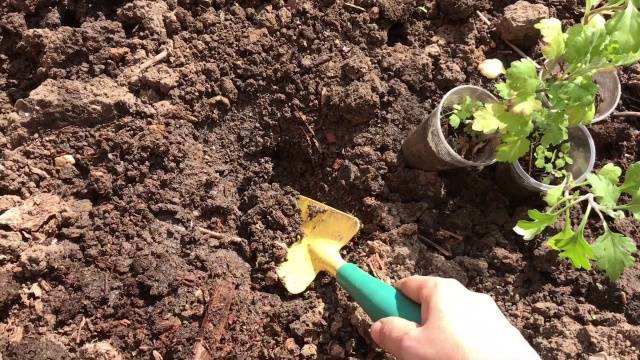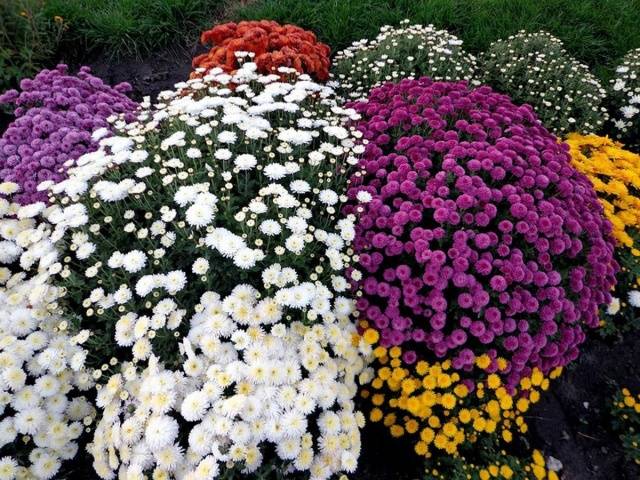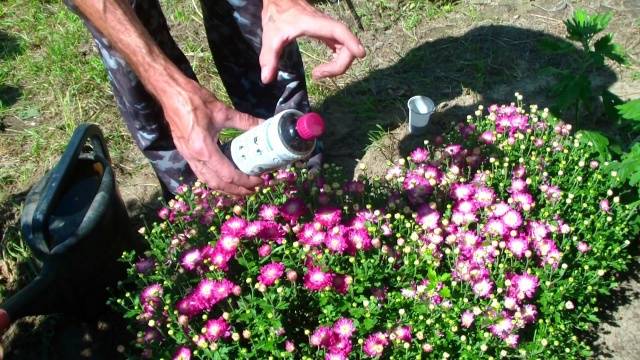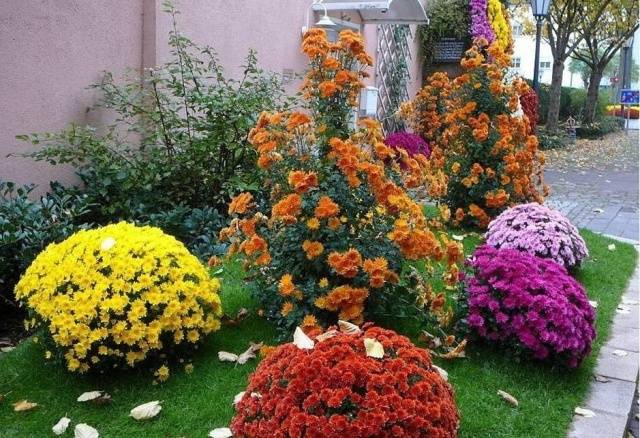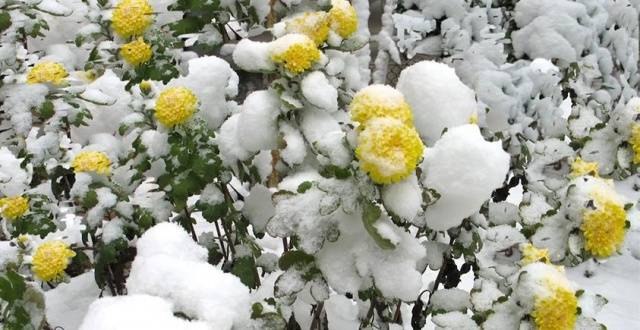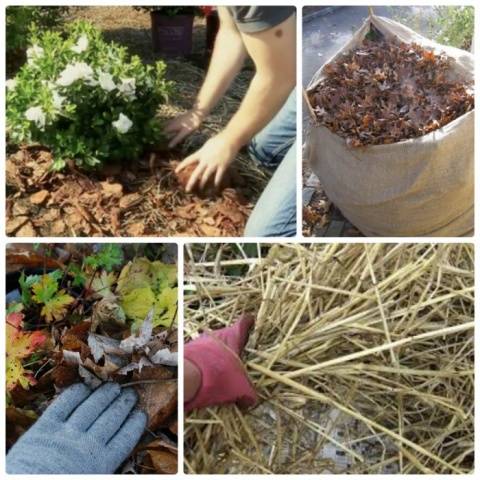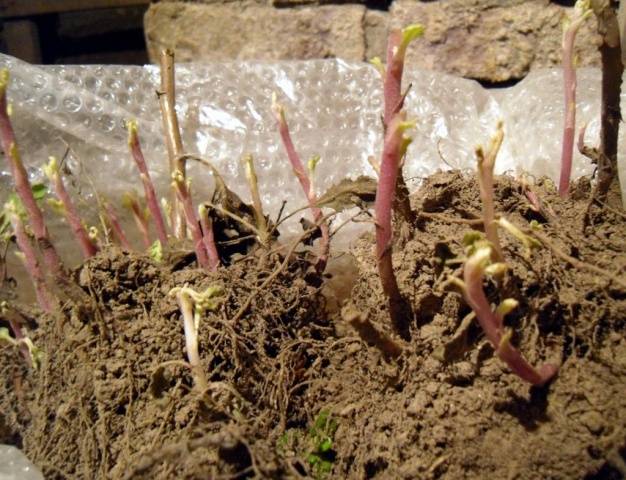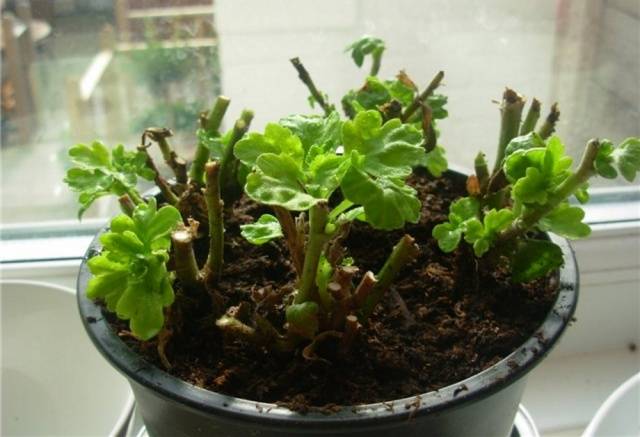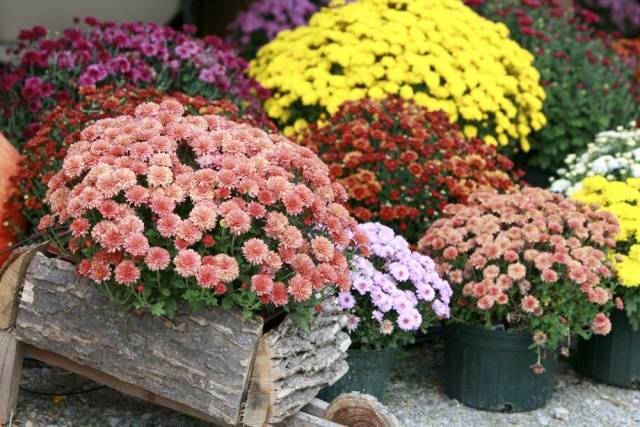Chrysanthemums belong to the Asteraceae or Asteraceae family. For the first time, Confucius wrote about these flowers, which means that in the 1st century BC in China they already knew about chrysanthemums and successfully used them in medicine, cosmetology and perfumery. Today it is known about several thousand varieties of these amazing flowers, varieties of chrysanthemums differ not only in color, but also in the shape of the petals, the size of the bush, and the flowering time. One of the newest varieties is Multiflora chrysanthemum - a compact bush with many small brightly colored inflorescences. Multiflora is not intended for cutting, this variety was bred specifically for planting on flower beds and borders, chrysanthemum is also suitable for decorating balconies, gazebos, greenhouses, planting in pots and boxes.
The rules for planting and caring for Multiflora chrysanthemums, methods of propagation of these flowers, recommendations for wintering will be discussed in this article. The most popular varieties of Multiflora with photos and names will also be listed here, options for planting and decorating flower beds with compact chrysanthemums will be proposed.
Features and varieties
Chrysanthemum Multiflora is a low-growing bush of regular spherical shape. This subspecies of the plant belongs to super-low-growing varieties, since the height of the Multiflora bush rarely exceeds 50 cm. Each bush is abundantly strewn with small bright flowers, the shades of which can be very diverse. Chrysanthemum leaves are small, but they are not visible behind hundreds of inflorescences.
In accordance with the timing of flowering, all varieties of Multiflora chrysanthemums are usually divided into three groups:
- Early varieties of chrysanthemum Multiflora bloom in August.
- With the onset of September, medium-flowering species bloom.
- Medium-late flowering multiflora opens its buds only in late September - early October.
The flowering of chrysanthemums of the Multiflora subspecies is very long in time. So, early varieties can bloom profusely from August to the first frost.
Some experts suggest dividing Multiflora varieties also according to such a feature as the height of the bush. However, practice shows that it is possible to regulate the size of plants by pinching the shoots and different planting dates. It is better for a novice gardener to immediately buy the multiflora chrysanthemum variety that suits the height:
- at super short chrysanthemums, the height and diameter of the bush are approximately equal and correspond to 20-30 cm (such varieties of Multiflora can be grown in a pot or in a box);
- medium-sized flowers reach a height of 30-40 cm, the diameter of the bush is usually the same;
- at tall varieties of bushes can reach 60-70 cm, such a Multiflora will have to be tied up or supported for it.
The height of chrysanthemums and the correct shape of their spherical bushes are highly dependent on the weather and climatic conditions in the region, the place of planting and growing conditions.
Ball-shaped varieties
Growing chrysanthemum Multiflora today is one of the main trends and fashion trends in landscape design. These unpretentious flowers can be planted in Siberia and the Moscow region; thermophilic beauties feel great in the southernmost corners of the country.
One of the advantages of the spherical shape is resistance to spring frosts, so chrysanthemums can be planted as early as April. But southern plants cannot withstand winter frosts, almost throughout the entire territory of Russia, Multiflora has to be sheltered, and in the coldest regions, flowers are completely dug up for the winter.
Chrysanthemum varieties Multiflora widespread in temperate climates with a photo and a short description can be found below.
Branfountain lemon
Multiflora of this variety belongs to mid-flowering chrysanthemums - its buds bloom in early September. The spherical bushes reach a diameter of 50 cm, and their height is the same. Inflorescences are small, lemon-yellow in color. The bush is simply strewn with delicate flowers.
Bransky plum
This chrysanthemum can be considered tall, which is rare for Multiflora. The height of the Bransky Plum bush, on average, is 70 cm. Inflorescences from small to medium, painted in a muted red tint.
Branroyal yellow
Chrysanthemum Multiflora yellow blooms so thickly and abundantly that the gardener often does not know about the presence of leaves from this plant - the entire spherical bush is strewn with bright double inflorescences.
Branbeach orange
A very early variety Multiflora, opening buds already at the beginning of the second decade of August. The balls reach a diameter of 50 cm. The color of the inflorescences is very delicate, pale orange.
Brandove white
Compact bushes of this chrysanthemum are strewn with inflorescences in the form of pompons - small lush balls. The color of the flowers is delicate and interesting - a light salad shade of the core combined with snow-white tips of the petals.
Branchili
It is simply impossible not to notice these bushes with flowers of a shade of hot Chilean pepper. The Branchili chrysanthemum has a small height - about 40 cm, but the inflorescences are quite large - about 4 cm in diameter.
Branindio
This Multiflora creates the illusion of a two-color flowering: the opened inflorescences are painted in a golden yellow hue, and the buds on the bushes are orange. Plant height is 50 cm. The variety begins to bloom in the first days of September.
Branstorm
A very bright variety with rich red inflorescences. Chrysanthemum blooms early - late August - early September. Bushes of medium height - about 50 cm.
Branfountain purple
Chrysanthemum Multiflora lilac blooms, usually in mid-September (the exact time of flowering depends on the climate and weather conditions in a particular region). Bushes of medium size - 40-50 cm. Flowers are double, painted in a beautiful lilac shade.
Branbeach lilac
This chrysanthemum also blooms in mid-September. Bushes are small, compact, their height usually does not exceed 50 cm. Inflorescences are large, mauve.
Brangala
Chrysanthemum Multiflora Brangala is considered a prominent representative of the potted varieties of this plant.The bushes of this variety are very compact, their height never exceeds 35 cm. The shade of the inflorescences is coral. Frost resistance is low, so the flower is rarely grown outdoors.
Branroyal
Chrysanthemum Branroyal is a whole group of Multiflora, in the line of this variety there are many shades (white, yellow, orange, red and others). Bushes are usually small - up to 40 cm in diameter. The inflorescences are rather large - about 4.5 cm. A distinctive feature of the variety is a very abundant number of flowers.
Florist's Memo
Growing chrysanthemums of the Multiflora subspecies is a simple process that does not require special skills and abilities. therefore this flower is great for novice florists... In order for the Multiflora bushes to have the shape of an ideal ball, and their flowering was abundant and bright, you need to adhere to simple recommendations for planting and caring for these plants.
Reproduction methods
It is not difficult to propagate Multiflora, especially since it can be done in several ways:
- seeds;
- dividing the uterine bushes;
- by cuttings.
Reproduction by divisions
It is recommended to dig out mother bushes from the soil in late summer or autumn, when there is still no threat of frost. This method allows you to get several from one bush, in addition, Multiflora is rejuvenated due to this division, the plants acquire a more regular ball shape.
Young shoots should be separated, which have already formed their own root system. For work, you can use a sharp garden knife. The resulting bushes are planted separately from each other at a sufficient distance (at least 50 cm), the tops of the plants must be pinched, the chrysanthemums themselves must be watered abundantly.
Cuttings
Reproduction of chrysanthemum Multiflora by cuttings is a very popular method. The flower reproduces well with green layers, which need to be cut or torn off and rooted in a container with water, wet sand or shaded soil. Rooted cuttings will grow roots in 10-14 days, and they can be transplanted to a permanent place.
In spring, Multiflora can also be propagated by cuttings. Flowers extracted from the cellars after wintering are placed in the sun, where they begin to give new shoots. When the length of such processes is 10 cm, the bush is carefully divided. Shoots are immediately planted in a permanent place in open ground or in a pot. A full-fledged chrysanthemum bush may well grow from one shoot.
Seed propagation
Experienced growers may try to grow Multiflora from seeds. Two methods of such reproduction are actively used:
- Direct sowing into the ground. In late April or early May, chrysanthemum seeds are sown in a flower bed. The depth of the holes should be 3-5 cm, the distance between them is about 25 cm. A pair of Multiflora seeds are placed in abundantly watered holes, sprinkled with earth and covered with polyethylene until germination. After a couple of weeks, you need to remove the second shoots and plant them in another place - one flower should remain in each hole.
- Seedling method. In late February or early March, you can sow chrysanthemum seeds for seedlings. The soil in the container is moistened with a spray bottle and the Multiflora seeds are spread over the surface. After that, the container is covered with glass, lid or film. Crops are regularly ventilated and moistened. When a pair of leaves appears, the flower seedlings dive. By the time of planting in the ground, the seedlings should reach a height of 20 cm, the tops of the chrysanthemums are pinched after planting.
Planting recommendations
Chrysanthemums love the sun, and this fact must be taken into account when choosing a place for planting these flowers. Otherwise, the flowers are unpretentious, they can grow on almost any soil, they tolerate spring colds well, but they do not like drafts and swampy soil.
In central Russia, Multiflora is recommended to be planted in early May, when the temperature stabilizes and the soil warms up well. The distance between adjacent bushes depends on the size of the chrysanthemum, but the interval should be at least 45-50 cm.
You can add a little sand and peat to the planting holes if the soil in the flower bed is too heavy. Multiflora prefers neutral soils. The pH level can be adjusted with lime, dolomite flour.
It is better not to be zealous with fertilizers: immediately after planting, the flower needs to acclimatize, and due to excess nutrition, it will quickly grow. Only scanty sandy loam soils can be fertilized with mineral complexes, wood ash or a small amount of humus.
How to care for ball-shaped varieties
Care, like landing, for Multiflora is not particularly difficult. These chrysanthemums are not capricious, they develop well in different conditions, and do not require much attention.
Measures for the care of Multiflora bushes are standard:
- Water the flowers rainwater or well-settled water is recommended. It is better not to wet the leaves and flowers, watering at the root. Multiflora loves water, so during dry periods it is watered often and abundantly. In the flowering phase, the amount of moisture must be reduced or watering must be stopped altogether. To better retain moisture in the soil, the soil should be loosened or mulched.
- Feed ball chrysanthemums will not often, these plants are undemanding to the level of nutrition. If the holes were fertilized during the planting period, this may be enough - during the entire growing season, the flowers are no longer fed. Some growers use banana peels for fertilization, which are dropped into the ground near the bushes. During the budding period, you can feed Multiflora a little with phosphorus and potassium.
- Shape chrysanthemum bushes not necessary - the plant itself must take the shape of a ball. Some growers, nevertheless, prune the shoots of flowers to give them just the perfect shape, but, as practice shows, this is not necessary. You need to pinch the shoots only after planting cuttings or seedlings of Multiflora.
Chrysanthemum Multiflora needs to be transplanted to another place every three years. If this is not done, the variety will degenerate, the bush will no longer be so lush and round.
Wintering rules
The question of how to preserve Multiflora chrysanthemum in winter is very relevant, because the plant is southern, thermophilic. Depending on the climate in a particular region, there is three options for wintering this flower:
- in the open field;
- under cover;
- in a cool and dark place.
Wintering in a flowerbed
Wintering Multiflora outdoors is possible only in the southernmost regions with a warm climate and mild winters. Florists from these regions may not even cut the bushes of spherical chrysanthemums: when the shoots are completely dry, they will break off themselves and become a natural protection of the rhizome from the cold.
In order not to risk it, it is better to prune the shoots of Multiflora to 15 cm immediately after the stems dry. Cover the bushes with dry foliage, peat or sawdust.
Winter shelter for flowers
In the middle lane, some growers also leave Multiflora to winter in a flower bed, but before that they cover the plants. Already at the end of September, in these latitudes, it is better to protect the bushes with a polyethylene or plastic frame in order to prolong flowering and protect from the night cold.
When the chrysanthemums have faded, their stems are shortened to 15 cm. The bushes are abundantly covered with a thick layer of mulch (at least 10 cm), sand or earth. As soon as the temperature drops to minus marks, Multiflora is covered with spruce branches or with your own bushes cut off earlier. Such a shelter will be able to ventilate and prevent kidney damping.
Storing flowers in the basement
The most reliable wintering option for the Multiflora variety is winter storage of the roots in the cellar or in the basement. In autumn, the stems of the flowers are cut, after which the rhizome is carefully dug in (the root system of these chrysanthemums is superficial, so you don't have to dig deep).
The roots taken out of the ground are placed in dry soil or in sand. The substrate must be moistened and the flowers must be sent to a cool place, where in winter the temperature will be maintained at +3 - -5 degrees. Chrysanthemums should be visited and watered every month. The soil between the roots should not be too wet, but excessive dryness is detrimental to Multiflora.
In March, the roots of chrysanthemums are taken out of shelters and placed in a bright, warm place with an air temperature of about +15 degrees (on a veranda or on a balcony). There, the flowers will begin to appear with buds, green sprouts, at the end of April they can be divided and planted in a flower bed.
Conclusion
Chrysanthemum Multiflora is a versatile plant. You can use this flower for framing garden paths, decorating borders and ridges, spherical bushes are perfectly combined with strict lines of conifers, dilute the greens of herbaceous plantings with variegated colors. Often, undersized varieties of Multiflora are grown in flowerpots, pots and boxes, decorating gazebos, balconies and window sills with flowers. A photo of the spherical chrysanthemum Multiflora will not leave anyone indifferent.
There is nothing difficult in growing chrysanthemums, Multiflora multiplies easily in several ways., which will be discussed in more detail in the video:
